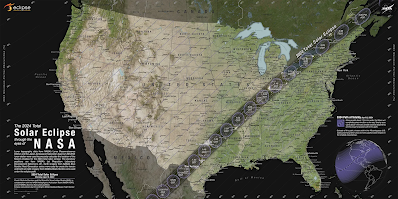Some Things I've Learned from Self Publishing Novels
Here is an evergreen list of a few things I’ve learned about self-publishing. By the way…there’ll be more books coming out later this fall!
- When plotting a story, really nail down the 5 milestones.
-
The M.C. must be active. Readers hate passivity.
-
The M.C. should have some personal issues/struggles
to deal with.
-
Always have a punchable villain. Even if the
villain is a concept or a horrible disaster.
-
Write it all out. As quickly as possible. Your
brain’s storytelling, when let loose, is far superior if allowed to go with the
flow. Only edit after you are finished. The first time I started a novel I made
the mistake of editing all my previous day’s work the next morning. Disaster! I
essentially had to go back and re-write that first part. The brain’s natural
flow is best.
-
The writer must be disciplined. Treat it like a hobby,
and it will pay as a hobby.
-
Show - don’t tell - when writing. The scene
should explain what is going on. Not the writer saying it.
-
Get a few good beta readers to look at your
manuscript. But feel free to ignore the advice you think is incorrect.
-
Editing is a massive process. I found it takes at
least 50% of the actual writing time.
-
Book an editor in advance. The good ones will be
backlogged. Plus, it gives you a deadline.
-
It’s ok to hire a format designer for the first
book or two, but ideally, you can do that on your own soon after. There are
substantial benefits to formatting your book.
-
Cover design is the most frustrating process of it
all! Stay on genre. Don’t be witty, be clear. A quick glimpse of the cover
should let the reader know what it’s going to be about.
-
Writing will take a month or two. After that,
expect delays. Possibly 2-3 months of delays until that book is published.
-
Get a solid launch team. Give them advanced
copies. It’s ok on launch day to ask them to pay 99 cents on an e-copy before
they post their review (thus getting the verified purchase tag).
-
Tell people you are writing the book. Most
friends/coworkers would be upset if you hid it from them.
-
Poor reviews hurt. But remember, JRR Tolkien has
1-star reviews on Amazon! Some people are just…idiots.
-
Know your genre for where to make the most
sales. For example, most sales for sci-fi are digital. There’s a writer I know who
sold 80,000 books last year. Just 43 of those were hard copies. However, say for
middle-year fiction, it’s hard copies that sell. Market accordingly.
-
Expect the first book to not go as well as you
planned. Success is a process. It really is. Failure, whatever that means, is
inevitable.
-
Make a game plan. Stick to it.
-
Basic principle of sales for a series: You will retain
only 50% of your readers from your first book to your second. For the third
book, you will retain 80% of your second-book readers. By the 4th
book, you will be retaining all your readers. Moral: With a solid foundation, a
long series can make you the most money.
-
The actual quality of the book is 100% the most
important thing. Following that, the marketing of the book is 100% the most
important. Huh? This means that EVERYTHING is important.
-
Marketing is a CHALLENGE. And to be frank, it
sucks. There are some good free courses to help, especially for Amazon and Facebook
ads. Matthew J. Holmes does good work (based in the UK).
-
Some authors drop $5000 into ads for a new book.
They are banking on Amazon ads with getting their momentum going. This is too
risky for me. And yet…I see it working for one fellow author I’ve talked to.
-
Email lists are still essential. Especially in
this world of getting canceled on many social media platforms. Offer them a “freebie”
of something to join your email list.
-
Stalk other successful indie writers in your
genre (called Tier 1s). I’ve even reached out to some personally and they’ve
been very kind and helpful.
-
It’s a marathon, not a sprint.
-
Find a “community” to help. It could be a writer’s
Facebook group, or whatever.
-
If you’re the smartest person in the group, then
you’re in the wrong group. There is so much to be learned from others.
-
Writing is a tough business.
-
Writing is one of the greatest creative outlets
imaginable.
-
Have fun. Writing a book can be a special, even
spiritual, process.







Comments
Post a Comment